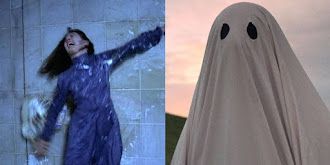Exploring the Unseen World: What Happens After Death
Exploring the Unseen World: What Happens After Death
As human beings, we have always been fascinated by the concept of death and what happens to us after we die. Is there an afterlife? Do we simply cease to exist? These are some of the questions that have puzzled us for centuries. In this article, we will explore different beliefs, scientific theories, and cultural perspectives about what happens after death.
Introduction to the topic of death
Death is a natural part of life, yet it remains one of the most mysterious and feared phenomena in human existence. Throughout history, people have tried to understand and make sense of death in different ways. Death can be defined as the cessation of life, the point at which our bodily functions cease to operate. But what happens to us after we die? This question has been the subject of much debate, speculation, and contemplation.
Different beliefs about what happens after death
Different cultures and religions have their own beliefs and traditions about what happens after we die. For instance, many Christians believe in the concept of heaven and hell, where the righteous are rewarded with eternal life in heaven, while the wicked are punished in hell. In Hinduism, death is seen as a transition from one life to another, with the ultimate goal being moksha or liberation from the cycle of birth and death.
In Buddhism, death is viewed as a natural and inevitable part of life, and the goal is to attain enlightenment and escape the cycle of rebirth. Meanwhile, some indigenous cultures believe in the existence of an underworld or spirit world, where the souls of the dead reside. These are just a few examples of the many beliefs and traditions about what happens after death.
Scientific theories about death and the afterlife
From a scientific perspective, death is seen as a biological process that occurs when the body's vital functions cease to operate. However, some scientists and researchers have explored the possibility of an afterlife from a more metaphysical standpoint. One theory is that consciousness is a fundamental aspect of the universe and that it continues to exist after death.
Another theory is that our consciousness is a product of the brain's activity and that it ceases to exist when the brain dies. However, some studies have reported near-death experiences where people claim to have had out-of-body experiences and encountered deceased loved ones. While these experiences are not conclusive proof of an afterlife, they do raise intriguing questions about the nature of consciousness and the possibility of an afterlife.
Cultural perspectives on death and the afterlife
Death is a universal phenomenon, but different cultures have their own unique perspectives and rituals surrounding death and the afterlife. In Mexico, for example, the Day of the Dead is a celebration of the lives of deceased loved ones, and people gather to offer food, flowers, and other offerings to the dead. In Japan, there is a tradition of ancestor worship, where people honor and pay respects to their ancestors through elaborate rituals and offerings.
In some African cultures, death is seen as a transition to another realm, where the dead continue to play a role in the lives of the living. These cultural perspectives show that death is not just a biological process, but a social and cultural one as well.
Conclusion
In conclusion, the question of what happens after death remains one of the greatest mysteries of human existence. While different cultures and religions have their own beliefs and traditions, and science has its own theories, the truth is that we may never know for certain what happens after we die. However, the exploration of these different perspectives can help us to better understand and appreciate the diversity of human experience.
So, what do you believe happens after death? The answer may remain a mystery, but the conversation and the exploration of this topic can help us to find meaning and purpose in our own lives.



Comments
Post a Comment